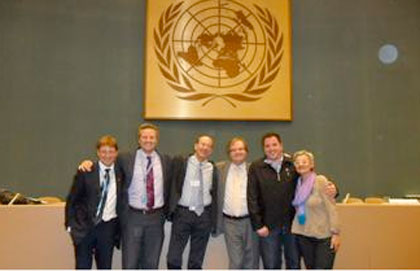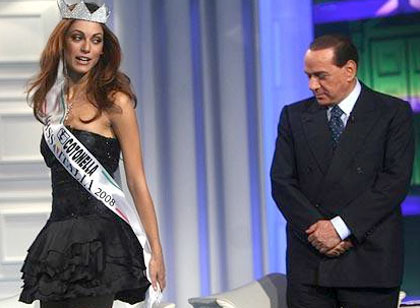BY NOREEN FAGAN – There’s some good news and there’s some bad news.
![]() On July 25, the International Gay and Lesbian Association (ILGA) finally won United Nations accreditation. ILGA, one of the oldest organizations fighting for gay rights, had been trying to gain recognition at the UN for the past 20 years.
On July 25, the International Gay and Lesbian Association (ILGA) finally won United Nations accreditation. ILGA, one of the oldest organizations fighting for gay rights, had been trying to gain recognition at the UN for the past 20 years.
According to Reuters Africa, 29 countries — mainly European and Latin American, but also India, South Korea, Japan and Mongolia — voted to allow ILGA consultant status to the UN Economic and Social Council (ECOSOC). Thirteen countries, all African and Islamic countries, as well as China and Russia, opposed the motion.

There were six abstentions: Guatemala, Mauritius, Philippines, Rwanda, Bahamas and the Ivory Coast.
That’s the good news and a step forward for gay rights.
However, on Tuesday, July 26, Italy put a spanner in the works by rejecting a bill that would protect lesbian, gay, bisexual and trans people from discrimination.
Parliament’s lower house, dominated by Prime Minister Silvio Berlusconi’s conservatives, voted 293 to 250 not to approve the legislation.
Pink News reports that Italy already bans discrimination on the grounds of race, religion, ethnicity and nationality. Campaigners for the bill say that, because of the rising number of homophobic and transphobic attacks, gay and trans people need more protection.
Unfortunately, Italy is not known for its pro-gay stance; gay couples are not allowed to adopt or marry. And Berlusconi, well, he is just something else. His reputation as a playboy dominates his political role and his crassness is well-known. Last year, he brushed off criticism by saying, “It’s better to be passionate about beautiful women than to be gay.”

He must be beaming now that his party has trumped bigotry over human rights.
Parliament’s decision, however, has sent activists into a fury.
Paolo Patanè, head of gay rights association Arcigay, said that parliament “has betrayed justice and civility and has decided to support the violent.”
He also called upon the European Union to “help us face this extremely dangerous rise in homophobia, xenophobia and racism that the Italian parliament has decided to legitimize.”
Amnesty International also stepped in to say that parliament wasted an opportunity.

In fact, Nicola Duckworth, Amnesty’s director for Europe and Central Asia, was forthright in her admonishment of the parliamentarians.
“In addition to passing the right laws, authorities and politicians should set the example. They should promote equality and non-discrimination and refrain from and condemn derogatory and discriminatory remarks that foster a climate of intolerance.”
Hear, hear.
 Why you can trust Xtra
Why you can trust Xtra


